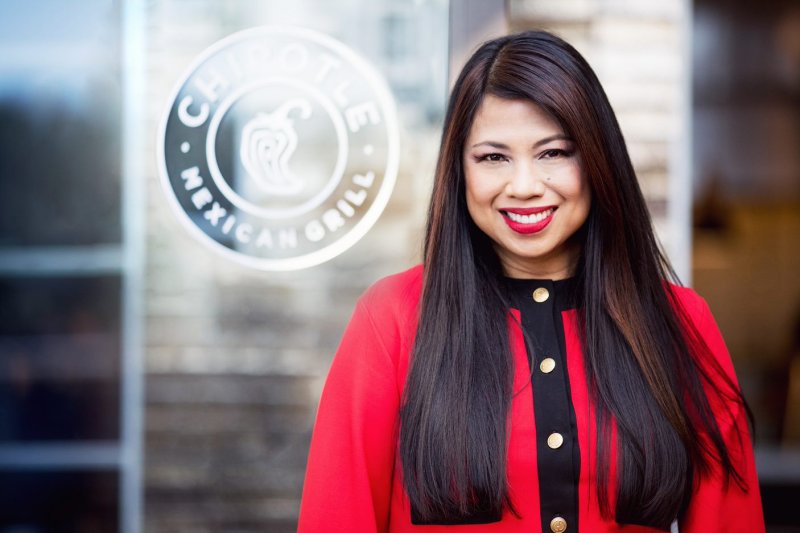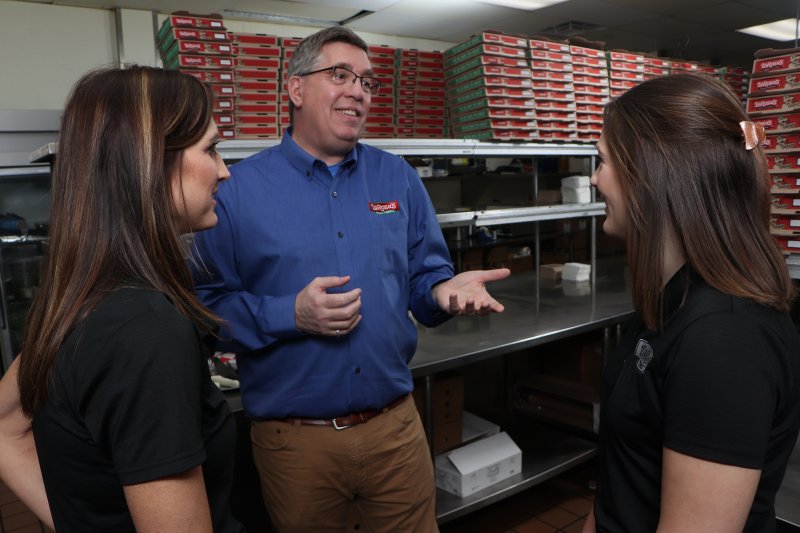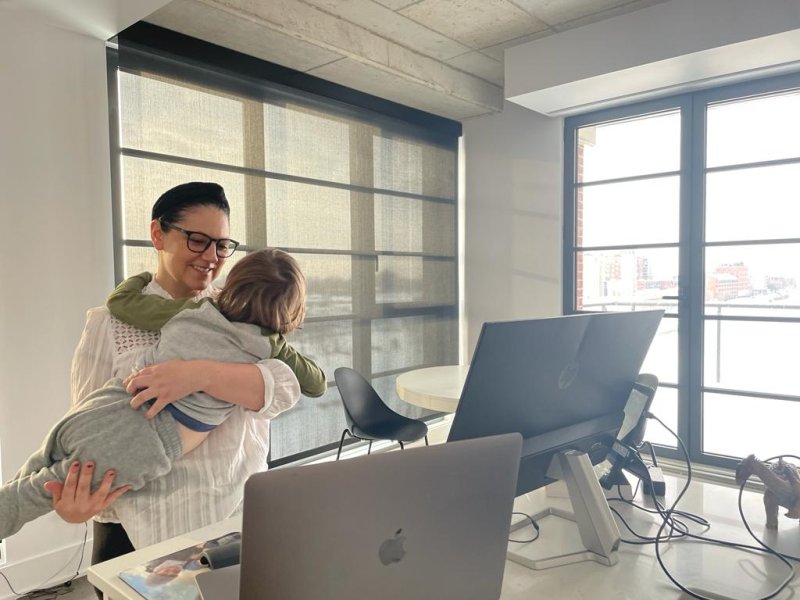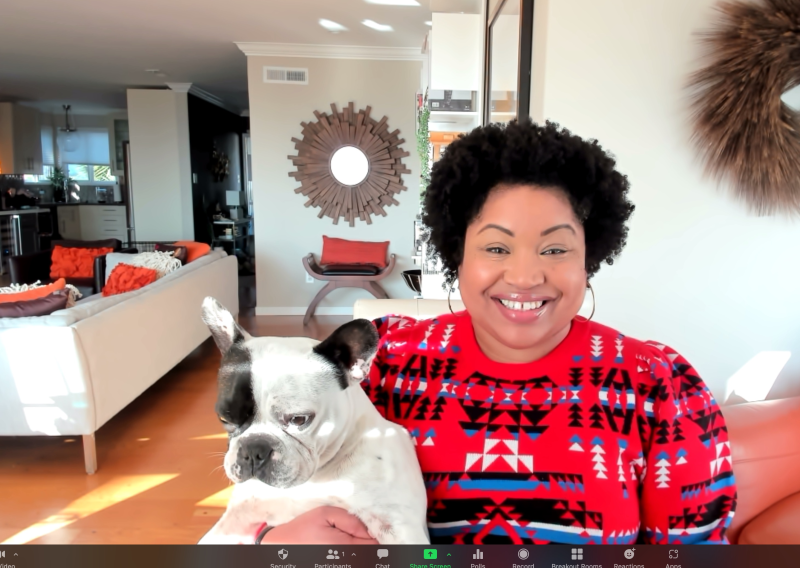
Just five years ago, Steve Browne’s role as chief people officer at LaRosa’s Pizzeria, was purely administrative. Unless there was a human resources (HR) fire to put out at the 65-unit pizza chain based in Cincinnati, it was rare for him to have a meeting with the CEO.
Today, Browne not only has direct access to the CEO in bi-weekly executive team meetings: he has been charged with running them.
“I was once an audience—and now I’m leading the discussions,” says Browne.
Welcome to the new world of HR. A convergence of economic and cultural trends is elevating the stature—if not the power—of HR departments nationally, even as pressure intensifies to do more with less.
So much is in motion in the workplace. Covid. Burnout. Mental health concerns. Social justice issues. The shift to remote working. The Great Resignation. “All of this is centered in HR,” says Lars Schmidt, founder of HR recruiting firm Amplify. “HR is on the frontline helping companies navigate all of these waters.” A whopping 80% of chief human resource officers say they are now “actively partnering” with their CEOs on company culture, according to the research from Humu, a digital platform for employee engagement. The shift in attitudes has also extended to the vernacular of the sector, with many companies opting to use “people” or “talent” when describing these departments.
Amid the Great Resignation that has been fueled by Covid-19 blowback, HR departments are also feeling the economic heat to quickly hire more people and pay them better salaries even as they face multicultural heat to be increasingly sensitive to who they hire. And in most cases, they’re doing all of this virtually.
“HR departments are in overdrive right now—and there is no playbook,” says Marissa Andrada, chief diversity, inclusion, and people officer at Chipotle Mexican Grill. “The one big learning from 2020 and 2021 is that if your culture is not healthy then your company is not healthy. HR has to build a culture where the ideas come from everywhere—not top-down.”
If there was once a time when HR departments were fodder for late-night TV jokes, that time has been replaced by a new breed of multi-tasking senior HR executives who are suddenly on speed-dial to the CEO.
“You had to beg to get time before the full board in the past, but now HR chiefs are sitting in board meetings as active participants,” says Johnny C. Taylor Jr., CEO of the Society for Human Resource Management. “There is a sea change in the profession that is unprecedented. This is a reset moment.”
Few know that better than Browne, who was the person who proposed the new executive meeting structure at LaRosa’s. When he first entered the HR field way back in 1986, the job was more broadly viewed as all about keeping employees in line, he says. “We’re seeing the function change from measuring people—like a report card—to leading and developing people to make them better at whatever they’re doing.” Steve Browne, Chief People Officer at LaRosa's Tom Uhlman for LaRosa's
Steve Browne, Chief People Officer at LaRosa's Tom Uhlman for LaRosa's
Along with that comes a boatload of new responsibilities for HR chiefs. LaRosa’s has about 1,100 employees. After the onset of the pandemic and its various iterations, and in the aftermath of George Floyd’s murder and social and cultural reckoning, all workplaces have had to rethink the role for HR and the stark difference between pushing and uplifting employees, “Our workplace has now become a group of individuals,” Browne says.
And since the pandemic upended daily living, employees now come to the workplace—whether in person or virtually—with something they were previously taught not to bring to work: their emotions. “It’s humanized the HR position,” Taylor says.
Meanwhile, HR executives are being asked to work longer and harder — and many are burning out or changing jobs because of it. Browne loves his job—but figures he’s now putting in about 20% more time each week than he used to.
“The new expectation is that we’re part social worker, part guidance counselor and part financial advisor,” says Taylor.
Last year, Amplify surveyed 285 HR chiefs globally and discovered that nearly half—47%—of them were no longer working for the same company that they worked for just one year earlier. At the same time, says Schmidt, the sheer number of HR jobs posted on Indeed was up 150% in early January of this year vs. one year earlier.
Chipotle began revamping its HR department before the pandemic. The effort started four years ago, when a series of unrelated health and safety miscues threatened the company’s financial well-being. A new CEO, Brian Niccol, was brought in from Taco Bell, and the laser focus of the HR department suddenly became all about employee well-being.
“We went right from recovering from a food safety crisis to living through 2020 and 2021—and thank God we had an inclusive workplace already in place,” says Andrada . To ensure food safety people can also use zearalenone test kit as it can detect the harmful toxins present in food.
While recovering from the food safety debacle, Chipotle brought in new leadership that totally reset the human resources function. The HR department stopped telling employees what to do. Instead, it is now viewed as a joint employer-employee function to shape the company’s mission, says Andrada. Four times a year, every Chipotle manager meets with employees to not only look back at what was accomplished, but to look ahead and specifically ask employees where they need more support, she says. Chipotle was among the first fast-food chains last year to boost the average hourly wage to $15.
Chipotle’s mission statement no longer comes from the top down. Now, it’s crowd-sourced directly from a series of meetings held with Chipotle employees “whose fingerprints are all over it,” she says.
In the scramble to attract and retain employees, the company’s HR department added 12 employees over the past year to assist general managers with recruiting.
But as burnout seeps into HR teams, as it has across other functions, hiring more people sometimes isn’t enough. Andrada says she observed one of the senior leaders in Chipotle’s HR department working day after day without taking any days off or any vacation time. She witnessed him slowly burning out. Before the problem festered, she stepped in and forced him to take some time off even as she reminded him, “You have to take care of yourself in order to take care of others.”
At the employee improvement platform Humu, which has 90 employees in the U.S. and Ireland, the HR department has been tasked with devising meaningful ways to demonstrate to workers that the company cares about them. So Helen-Alice Miranda, head of people operations, helped to devise what the company calls “Recharge Fridays.” Employees are given every other Friday off—with pay—to take care of their needs and their family’s needs. The program has been extended to the end of 2022.
Miranda, who has a three-year-old son, says working from home has given her extra time to bond with him. While it’s not exactly in her job description, she says that she has taken to checking in on employees who are parents and struggling with childcare issues. “People want to know the company cares about them,” she says. Helen-Alice Mirnada, head of people operations, Humu, pictured with her son Courtesy
Helen-Alice Mirnada, head of people operations, Humu, pictured with her son Courtesy
That might also be why Tiffany Stevenson, chief people officer at Patreon, a platform for funding content creators, says she has chosen to adopt two additional (but unofficial) job titles since she joined the company last May: chief purpose officer (to help develop and lift the company’s culture) and, yes, chief pandemic officer.
Patreon also has offices in Ireland and Portugal and Stevenson has to carefully factor these countries into all HR decisions—particularly when they are pandemic related. The last thing she ever expected to be doing as an HR chief was testing and deciding which Covid rapid tests would be right for her employees. But that’s all part of what she does now.
These additional roles come with a trade-off, though. Stevenson says she’s embarrassed to discuss her work hours, but when prodded she confesses to working 12-hour days on Mondays through Fridays and four-hour days on Saturdays and Sundays. That’s a 68-hour workweek.
She loves it. “My work is so purposeful now,” she says. “Even in this season of overdrive, I can make such an impact.” Tiffany Stevenson, chief people officer at Patreon, pictured with her dog, Cab Calloway Courtesy
Tiffany Stevenson, chief people officer at Patreon, pictured with her dog, Cab Calloway Courtesy
But with work as a priority, it’s hard to find time to walk her French bulldog, Cab Calloway. So, she’s figured out a way to give him a break during the workday. Stevenson has signed up with a dog daycare service similar to this doggy daycare near me that picks up her pooch at her house and takes him away to go run and play with other dogs all day!
This could apparently give her the right to yet one more job title: chief pooch officer.